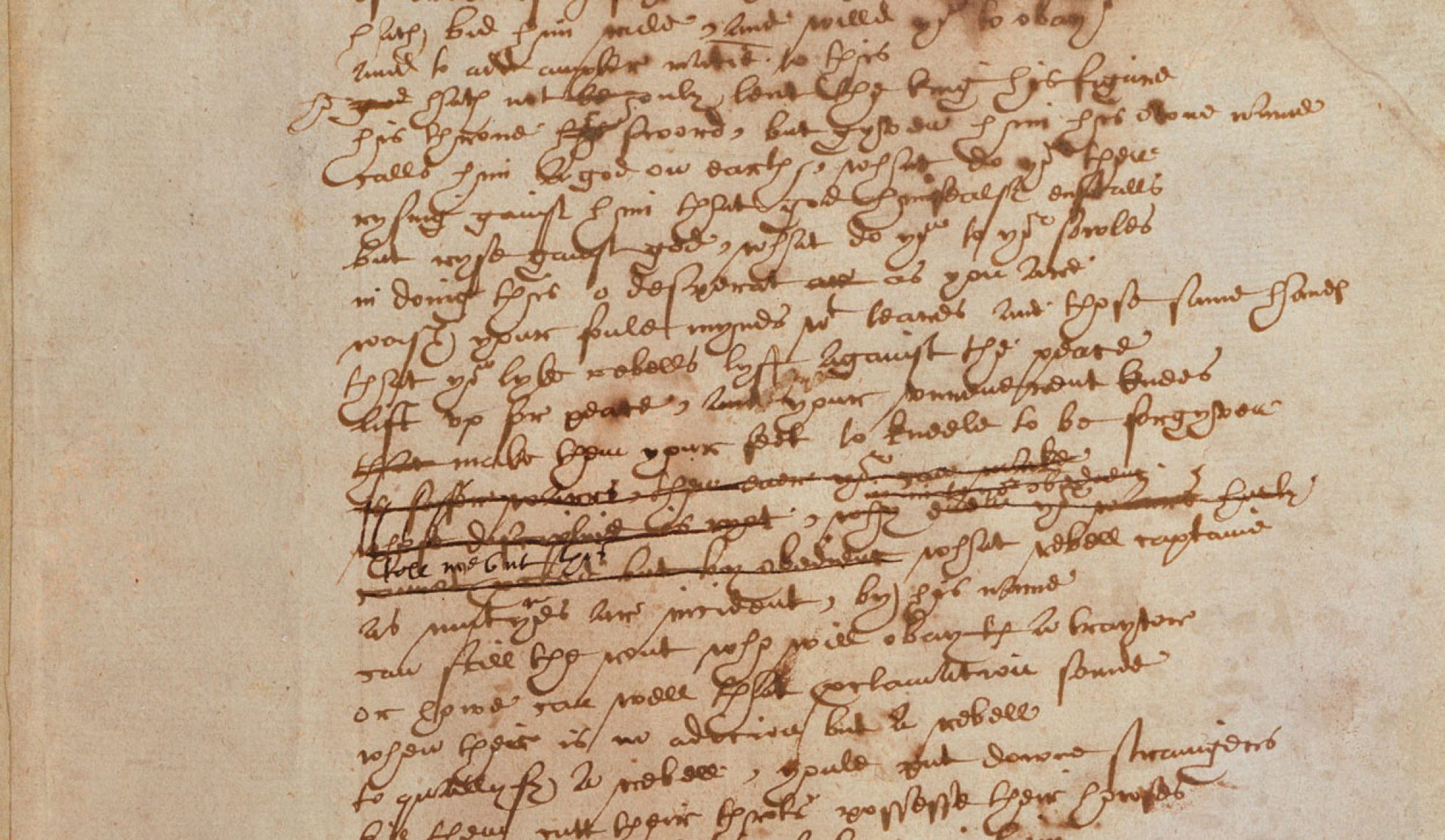2.5.72-106
| Messenger | He’s married, madam. | |
| CLEOPATRA | Rogue, thou hast lived too long. | |
| [Draws a knife] | ||
| Messenger | Nay, then I’ll run. | |
| What mean you, madam? I have made no fault. | ||
| [Exit] | ||
| CHARMIAN | Good madam, keep yourself within yourself: | |
| The man is innocent. | ||
| CLEOPATRA | Some innocents ‘scape not the thunderbolt. | |
| Melt Egypt into Nile! and kindly creatures | ||
| Turn all to serpents! Call the slave again: | ||
| Though I am mad, I will not bite him: call. | ||
| CHARMIAN | He is afeard to come. | |
| CLEOPATRA | I will not hurt him. | |
| [Exit CHARMIAN] | ||
| These hands do lack nobility, that they strike | ||
| A meaner than myself; since I myself | ||
| Have given myself the cause. | ||
| [Re-enter CHARMIAN and Messenger] | ||
| Come hither, sir. | ||
| Though it be honest, it is never good | ||
| To bring bad news: give to a gracious message. | ||
| An host of tongues; but let ill tidings tell | ||
| Themselves when they be felt. | ||
| Messenger | I have done my duty. | |
| CLEOPATRA | Is he married? | |
| I cannot hate thee worser than I do, | ||
| If thou again say ‘Yes.’ | ||
| Messenger | He’s married, madam. | |
| CLEOPATRA | The gods confound thee! dost thou hold there still? | |
| Messenger | Should I lie, madam? | |
| CLEOPATRA | O, I would thou didst, | |
| So half my Egypt were submerged and made | ||
| A cistern for scaled snakes! Go, get thee hence: | ||
| Hadst thou Narcissus in thy face, to me | ||
| Thou wouldst appear most ugly. He is married? | ||
| Messenger | I crave your highness’ pardon. | |
| CLEOPATRA | He is married? | |
| Messenger | Take no offence that I would not offend you: | |
| To punish me for what you make me do. | 125 | |
| Seems much unequal: he’s married to Octavia. | ||
| CLEOPATRA | O, that his fault should make a knave of thee, | |
| That art not what thou’rt sure of! Get thee hence: | ||
| The merchandise which thou hast brought from Rome | ||
| Are all too dear for me: lie they upon thy hand, | ||
| And be undone by ’em! | ||
| [Exit Messenger] | ||
| CHARMIAN | Good your highness, patience. | |
In truth I’m interested in the whole of 2.5, but this is an exemplary passage. The scene begins with Cleopatra’s call “music, moody food / Of us that trade in love” – an odd internal echo of Orsino’s famous opening speech in Twelfth Night – passes through the comic-erotic-nostalgic reminiscence about Antony and the salt fish, and then develops into a violent farce of a messenger scene. Cleopatra wants to script what the messenger will say and in attempting to do so delays and disrupts his report. When he finally does get to the gist of his dispatch, she attacks him and drives him from the stage before calling him back to repeat it again and again. As often happens in Love’s Labour’s Lost, the language here develops a kind of self-consciousness or meta-textuality. The passage plays at being a messenger scene. It also is asking something about the limits of communication—about whether it’s possible to have dialogue, to convey and receive packets of information. Dialogue in elsewhere in the play can have a fragmented quality: there are so many scenes of little reports and retorts on seemingly inconsequential subjects that leave one puzzled about the semantic/dramatic purpose. Act II, with its recurrent trope of the ‘hoop’ (cf. 2.2.122, 2.4.37) and its uneasy commingling of speeches with conversation seems to be asking something about how language between people holds—or doesn’t hold—together. Perhaps Cleopatra’s call for music is a call for another mode of communication altogether?
